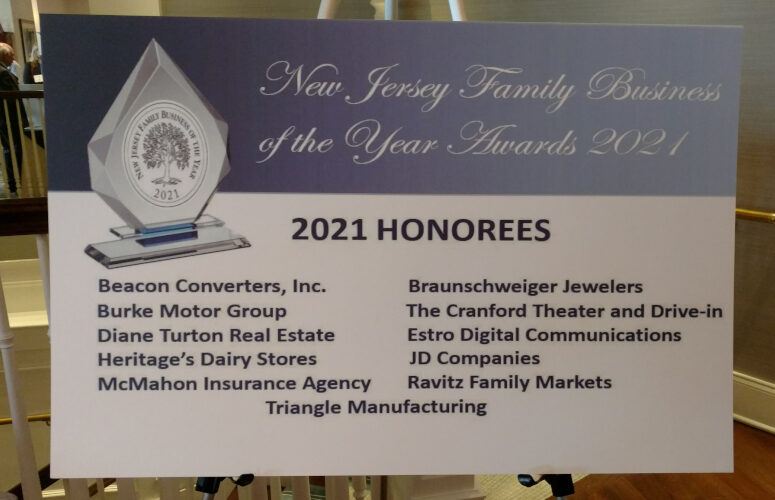
BMS Makes Progress Toward Long-Term DEI and Health Equity Goals
On Mar 15, 2023Bristol Myers Squibb (BMS) has announced it has made progress toward its global inclusion & diversity goals and health equity commitments, meeting and exceeding some goals ahead of schedule. In 2020, BMS and the Bristol Myers Squibb Foundation, an independent charitable organization, each committed $150 million over five years, totaling $300 million to address health equity efforts by 2025.
BMS and the Foundation are on track to achieve many of their respective goals and have exceeded some ahead of schedule. Progress against the four priority areas include:
- Health Equity: BMS has made measurable progress against its goal to award $150 million to address health disparities. Nearly $100 million in distributed funding has reached more than 10 million people through programs and services. BMS is announcing $10 million in grants during 2023 to 17 U.S. organizations focused on addressing social determinants of health, including healthcare access and literacy to help close gaps and increase access to healthcare.
- Increasing clinical trial diversity: In less than two years, more than half— 58%— of BMS’ clinical trial sites are now located in racially and ethnically diverse areas. This surpasses BMS’ initial goal of 25%. By embedding more clinical trial sites in diverse communities, BMS is helping enroll clinical trial populations that are more reflective of the broader patient populations and aligned with the epidemiology of the diseases we study.
- Diversifying suppliers: BMS achieved its goal of spending $1 billion globally with diverse-owned businesses that create jobs and generate positive economic impact in diverse communities ahead of plan. This is against the company’s original goal to reach $1 billion in spending globally with diverse-owned businesses by 2025. Sustaining and building on this achievement will remain a priority. Investing in diverse suppliers enables BMS to close economic and healthcare gaps in diverse communities.
- Diversifying company workforce: BMS has also made meaningful progress against the aspirational workforce representation goals announced in 2020, including the following:
- More than doubled Black/African American executive (Vice President and above, VP+) representation in the U.S. to 6.1% from 3%, just exceeding the goal of reaching 6% by 2022
- Increased the representation of global female executives (VP+) from 38.9% to 48.7%, nearly a 10% increase in two years, just below the goal of 50% by 2022
- Increased the representation of Hispanic/Latino executives (VP+) in the U.S. from 3.7% to 6.1%, just below goal of 7.4% by 2022
BMS is announcing new aspirational workforce representation goals for Executive Directors and above (ED+) to strengthen our internal pipeline of talent and the next generation of leadership at BMS. These goals include:
- Increase the representation of African/American Black leaders at the Executive Director level and above in the U.S. to 10% by end of 2025
- Increase the representation of Hispanic/Latino leaders at Executive Director level and above in the U.S. to 11% by end of 202
BMS achieved gender parity in the overall workforce population in 2015 and is close to achieving gender parity at the executive levels. Although BMS is not establishing forward-looking representation goals for employees who are female, Asian American and Pacific Islander, or employees that represent additional dimensions of diversity at this time, the company remains fully committed to the development, advancement and engagement of these groups. BMS believes this approach enables the company to engage a broader set of experiences, backgrounds and perspectives to drive equitable outcomes for all.
As part of the company’s health disparity commitments, the additional nearly $10 million in health equity grants will be dispersed among 17 U.S. nonprofit organizations in 2023. These organizations address social determinants of health across BMS’ key therapeutic areas, cardiovascular disease, hematology, oncology and immunology. These grants support various organizations working to improve health in the U.S. These organizations are developing and implementing innovative approaches and partnerships for addressing social determinants of health and integrating social care and healthcare to reduce health disparities.
The Foundation has also made significant progress against its goal to award $150 million to address health equity through a three-pronged approach. The Winn Award Program, established by the Foundation with a $100 million commitment, is currently training 114 early-stage investigator physicians, and it has provided an immersive experience in community-based clinical research to 44 medical students who will support the goals of advancing clinical research in underserved patient communities. The Foundation has awarded $45 million supporting thirty-two grants to advance health equity in cancer, cardiovascular disease, and immunology. The Foundation has also mobilized approximately $1 million in employee donations supporting social justice organizations.
To access more business news, visit NJB News Now.
Related Articles:





